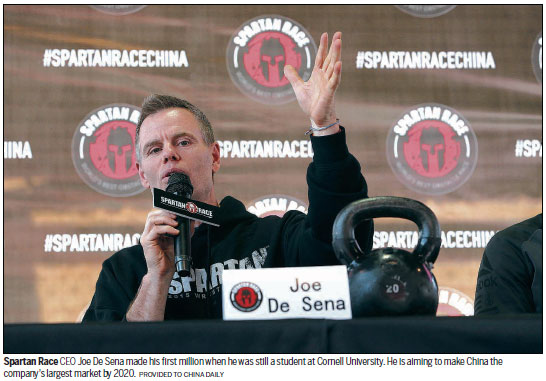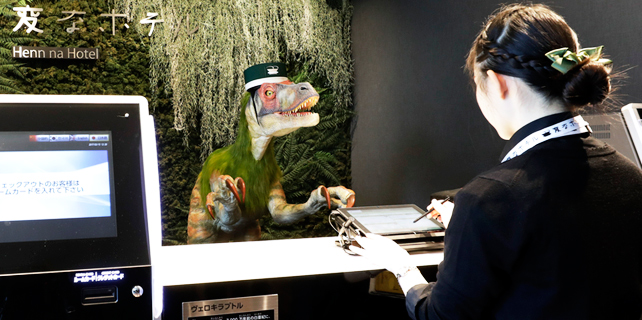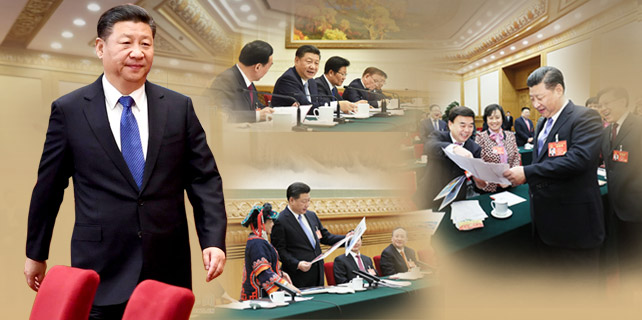Chief spartan in the house

The CEO of the widely popular Spartan Race says that resilience and authenticity are key to attaining success in business and life
For the past year, Joe De Sena, the CEO of Spartan Race, has been carrying a 20-kilogram kettlebell everywhere he goes.
Be it to the airport, to a cafe for a meal or even for a jog, the kettlebell is always with him, and it was no different during his recent business trip to Shanghai to prepare for the upcoming Spartan Race in May.
De Sena said that the act of carrying the kettlebell is a show of support to a 696-pound man who he had encouraged to lose weight. He had initially carried a sandbag around for nearly two years, but the object ended up being confiscated at an airport. He then switched to a kettlebell.
The 48-year-old added that another reason why he carries a kettlebell everywhere is to promote healthy living.
"We are all getting unhealthy. Although I am not a doctor, I can tell you for sure that many of us now live unhealthy lifestyles - the way we eat, the way we drink, the way we live. I want to change that," said De Sena.
After spending 17 years to develop Spartan Race into the world's largest obstacle race and endurance brand, De Sena said his ambition now is to make China the company's largest market by 2020.
The event was first introduced in China last year, with 18,000 participants signing up for the four races held in Beijing, Shanghai, Hong Kong and Taipei. De Sena said that the race will expand its footprint this year, with more than 200 set to take place across the world, including eight to 10 events in China.
De Sena's goal of further developing Spartan Race in China comes at a time when an increasing number of Chinese are starting to pay more attention to the importance of fitness. According to China Central Television, China's State Council projected that sports-related consumption would reach 1.5 trillion yuan ($216.86 billion) by 2020.









